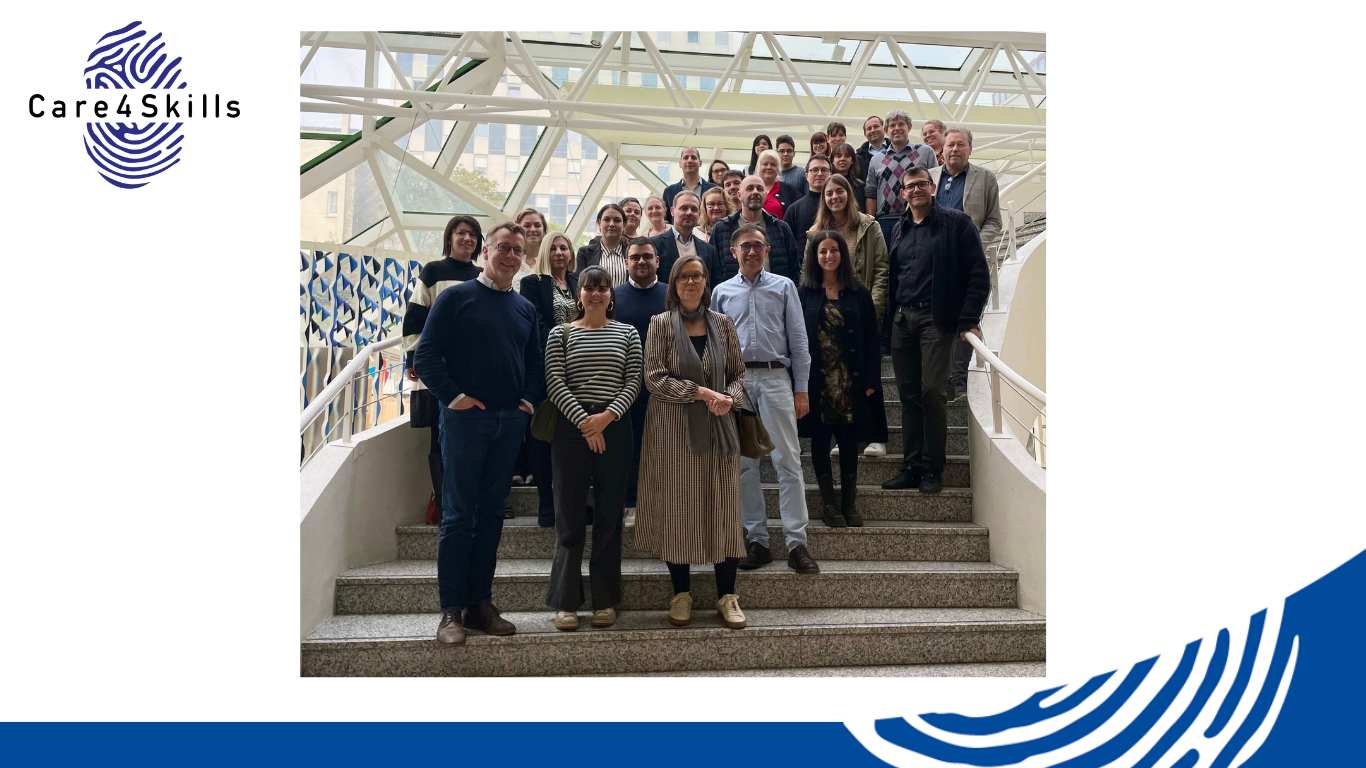Strengthening skills in long-term care: Care4Skills partners meet in Paris

The Care4Skills project partners met to discuss the latest project developments. The discussions focused on the ongoing research and the implementation of the Rapid Response Training program. These initiatives aim to support professionals in the long-term care (LTC) sector by addressing skill gaps and improving access to relevant training.
The primary research goal is to carry out an in-depth examination of the LTC sector to assess existing skill levels, identify critical skill gaps, and determine the future needs for effective care delivery. An essential aspect of the research is to map existing education and training programs available for LTC professionals, facilitating the identification of resources for upskilling and reskilling.
These insights will guide the development of tailored curricula and strategic approaches that address challenges in LTC, ensuring that the workforce is equipped with the necessary skills.
The Rapid Response Training is a MOOC (Massive Open Online Course) designed to equip LTC professionals with essential skills. Available in 10 languages, this course will focus on person-centred care principles and digital skills, both of which are increasingly important in providing high-quality, responsive care. The training aims to engage 1,500 professionals including social work assistant, nursing associate professionals and social care worker.
The MOOC will be launched at the end of 2024 and disseminated broadly.
The meeting in Paris highlighted the project’s commitment to enhancing the skills and competencies of the LTC workforce. Through ongoing research and practical training initiatives, Care4Skills is working to ensure the sector is prepared to meet current and future challenges effectively.
For more information on Care4Skills, click here.

